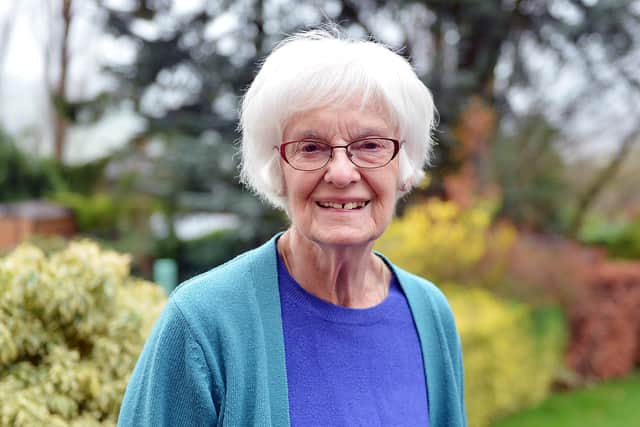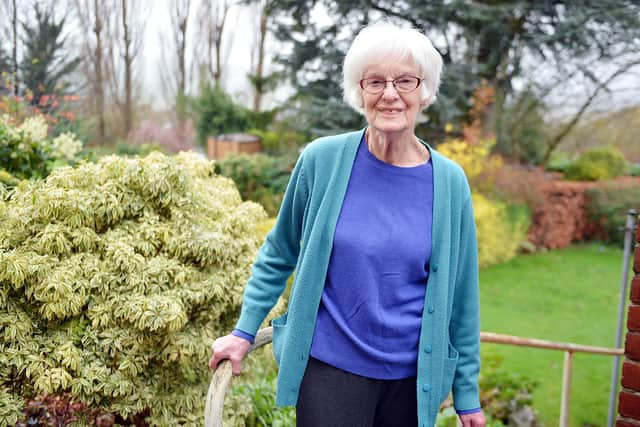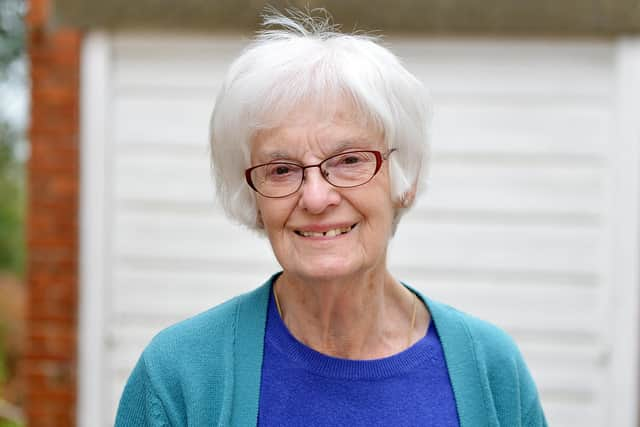Sheffield Blitz survivor shares her memories 80 years on
and live on Freeview channel 276
Maureen Owen was four years old at the time of the Blitz but she still feels her body tense up whenever she hears a siren, and has vivid images in her mind of the damage that was left behind.
Although she was only young, her parents and relatives spoke a lot about what happened during those nights, and she believes she took a lot of that information in.
Advertisement
Hide AdAdvertisement
Hide AdMaureen said: “As we approach the anniversary of the Blitz, even though I was only very young, I shall have my own memories, especially when I hear the sirens.”


She wonders whether it might be a reaction that she has got from her parents whenever they heard the siren.
Maureen added: “I can see it all quite vividly in my mind when I think about it. Even now, whenever I hear the noise of a siren, my body goes tense.”
She described the sequence of events that followed the siren warnings, which included her mother putting her in a siren suit.
Advertisement
Hide AdAdvertisement
Hide AdThe 84-year-old explained: “When the sirens went, I was used to being put into my siren suit and carried into the Anderson shelter, which had been built into our back garden for the use of my family and the family next door. I now realise that on this particular night we could hear the bombs dropping.


“My father and the man from next door kept looking out of the shelter and because we lived on a hill in Walkley they could see where some bombs had been dropped over the city.”
Maureen told how Anderson shelters were typically built into people's gardens and shared between two families, like the one she was in.
She remembers their shelter having two small bunks, the outside being made of corrugated iron with no grass on top, and with a step leading down to it.
Advertisement
Hide AdAdvertisement
Hide AdThe children - Maureen and the boy from next door who was nine months younger than her - may not have got to see the fire in the distance for themselves, but they were certainly aware of the noise.


Maureen said: “On that night, it was very noisy - there were planes coming overhead. The two men kept looking out of the entrance to the shelter.
“The houses were alright but over the hill, as we lived in Walkley, you could see beyond the city centre. My mum said she could see fire there.”
The scenes of destruction that were seen in Crookes in the days following the bombings is something that is still clear in Maureen’s mind today.
Advertisement
Hide AdAdvertisement
Hide AdShe added: “Fortunately no bombs were dropped very near to us, but the next day or the day after, my mother took me over Crookes and I remember seeing all the damage done there.”
Maureen recalls there being ‘rubble everywhere’ outside the shops and on the road.
Being young at the time, she has relied on stories that her parents and relatives have told her to fill in the gaps.
Maureen is keen to keep the memories of the Blitz alive and regularly talks to her sister about it, who was born a few years later than her, post war.
Advertisement
Hide AdAdvertisement
Hide AdShe said: “I can remember my mum and my aunt talking. On one of the nights, my uncle was due back on Sunday night. Buses had stopped running and he didn’t know the way. My aunt wanted to go with him but it wasn’t safe for her to come back on her own, so my mum went too. A bomb was dropped on the railway track. People went into an air raid shelter. I was told about this.”
Maureen also told how another uncle - who was in the RAF and at home on leave on the night of the Blitz - walked back and forth between Upperthorpe, where his fiance was, and Crosspool, where his parents were, just to find out whether loved ones were safe.
It is often forgotten that there were no telephones during that period and people had to write letters or physically visit each other in order to ‘find out things’ as Maureen explained.
She added: “My aunt worked in the city centre where she used to go to work every morning. One day she went to work and one colleague, a woman, wasn’t there. A man walked to where she lived and found that a bomb had been dropped and the house was destroyed.”
Advertisement
Hide AdAdvertisement
Hide AdMaureen, who now lives in Crosspool, is not sure whether her aunt’s story is Blitz related or not but she believes it is an important point to make in that people had to walk ‘round and round’ to check up on family and friends back then.
Although she is a Blitz survivor, she and many others can never forget those days in December 1940.
Maureen told how a few years ago, she visited some underground caves in Nottingham which were used as air raid shelters in the war and one was designed like an Anderson shelter.
She said: “They played the siren and I could just visualise.”
Advertisement
Hide AdAdvertisement
Hide AdShe also recalls a play at the Crucible theatre that ‘brought back to me’ what happened in the Blitz.
There are undoubtedly somewhat difficult memories that come with the anniversary, but there are also nostalgic memories too, for example, Maureen recalled trying bananas for the first time.